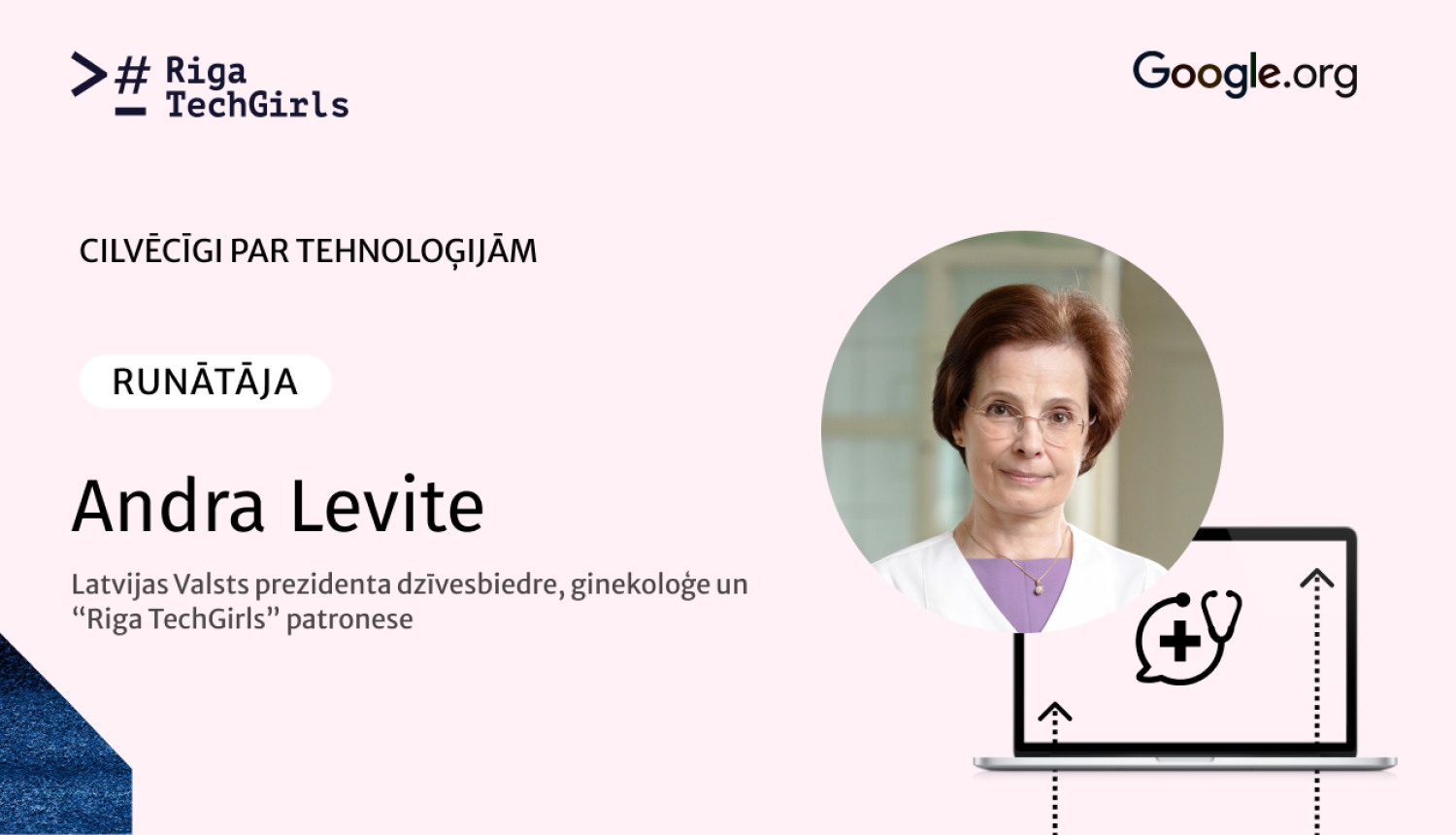Good evening, Riga TechGirls team!
Good evening, dear colleagues working in the field of health!
The amazingly dynamic Riga TechGirls team has once again developed and from today offers a new IT training programme - this time for health professionals - "Making Technology Understandable".
The potential for future innovation is significant in the health sector. Using digital solutions, it is possible to improve many treatment processes - both in diagnosis and therapy - as well as to focus on educating people about health and - above all - disease prevention.
Currently, medical institutions in Latvia are using artificial intelligence solutions to diagnose and treat patients more quickly and accurately, always respecting the individual safety of the patient.
This programme may help graduates to accelerate innovation in the health sector.
Undoubtedly, the health sector must be patient-centred and needs-driven. However, access to services in the health sector is a growing challenge, given the ageing population, various infrastructural features and shortages of medical personnel.
For example, telemedicine can be an aid to improve access to services. However, it also requires digital skills on both sides of the screen - on the side of the medical professional and on the side of the patient.
We live in an era when sharing information and good practice has become a common format for knowledge transfer. In Latvia’s health sector, there are currently a number of international cooperation projects that can bring the health sector up to the top of the competitive scale and at the same time provide up-to-date support to the population.
The goal should always be: to improve the patient's chances of recovery, with an emphasis on personalised and precision medicine.
Already today, the opportunities and offers of digitisation are numerous. Healthcare professionals, in consultation with IT experts, should carefully select the most appropriate and suitable options for the Latvian context.
Science and technology do not stand still. The knowledge acquired during studies must be continuously tested and expanded, so lifelong learning should not be just a project for the future. It must be a reality of today.
Lifelong learning undoubtedly includes digital skills in all areas of life.
Almost all European countries are experiencing the aging of population and longer professional working life.
The generation after me has already grown up with digital tools and skills. I had to learn and refresh them from time to time.
However, digital literacy is not just a generational issue, it is also a question of openness.
With a clear understanding of the requirements of working life, the Riga TechGirls team offers four different modules in the new programme: patient experience design, data processing in healthcare, digital tools in healthcare, technologies available today.
Digital skills are useful. They can help avoid unnecessary, repetitive, costly and psychologically distressing examinations for the patient. Digital skills can help to handle sensitive data carefully, to stay up-to-date with colleagues around the world as well as devote more time to the patient and less time to paperwork.
I applied for the programme and will start today. Many thanks to the Riga TechGirls team!




